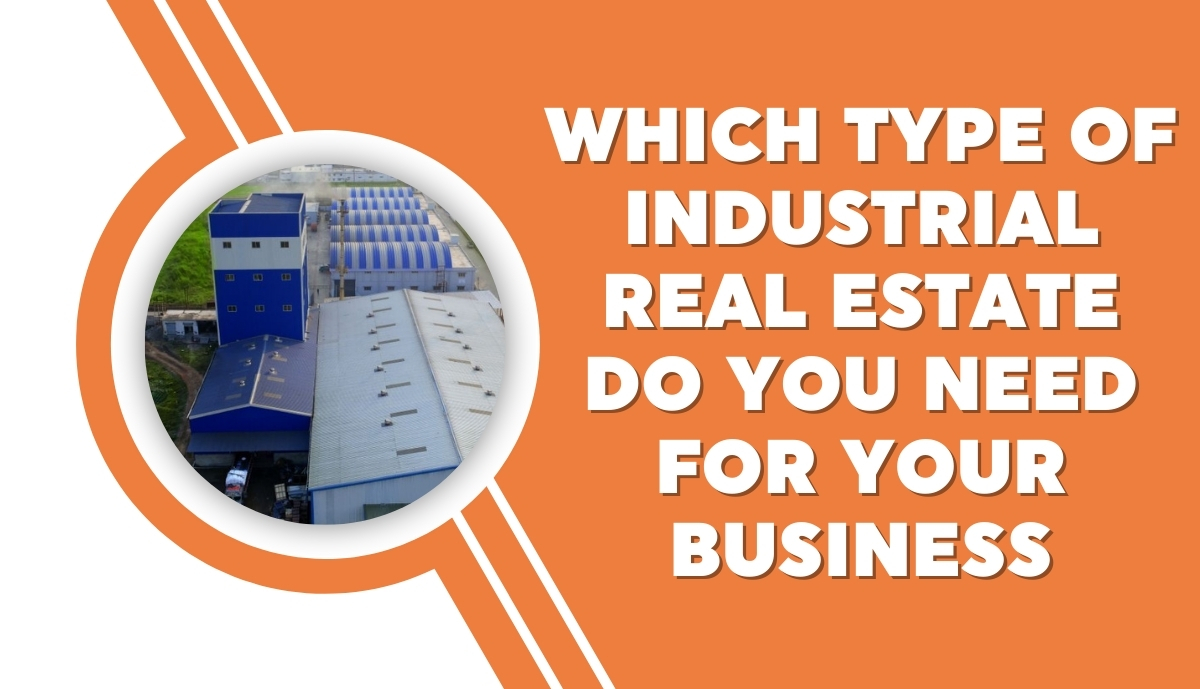Any building or land where industrial activities occur is best defined as industrial real estate. So, whether in logistics, distribution, or manufacturing, your business activities differ from those performed in regular or shared office spaces. That’s why you need an industrial property where you can carry forward the work seamlessly.
Industrial office spaces may include various business jobs – from assembly to manufacturing, production, warehousing, and storage. Every city has zoning requirements for properties within its borders. The industrial properties are located where your business can operate without disruptions or distractions from city life.
Given that the industrial sector is an expansive sector, you will find various types of real estate in this category. So, are you a beginner who plans to start an industrial business for the first time? This post presents the various types of real estate in the market.
Outlining the Various Types of Industrial Real Estate – Things to Note
Selecting an appropriate industrial real estate is imperative for businesses. Like other properties, you must carefully understand the type before choosing the real estate. Let’s learn more about each of the given points’ types.
Heavy/Light Manufacturing
Manufacturing businesses can consider either light or heavy manufacturing assembly. The heavy or capital-intensive buildings let you work with specialized equipment and tools to produce various products and materials. The heavy industrial manufacturing land or buildings must be spacious as it is associated with production.
On the contrary, light assembly properties are simpler and smaller than others. You can lease or buy this type of space for light manufacturing work. Here, you can produce small goods and materials to be shipped and stored.
Distribution and General Warehousing
A distribution warehouse is a type of building where you can ship goods from a centralized zone. It ensures that customers receive products efficiently without delays, irrespective of location. Such warehouses are one-story and usually include 50,000 sq. ft. for distributing and storing inventory.
On the other hand, you can select a general warehouse if your business deals with a lot of storage. Such a type of warehouse is usually built for storing instead of distribution. The products do not move in and out consistently.
For this reason, the door-to-square footage ratio in these warehouses is lower when compared to the other types. They are used for specialized industrial purposes like cold storage. Considering your business niche, you can choose any of these warehouses:
- Proprietary Warehouse – It’s appropriate for large retail establishments, manufacturing, and wholesale.
- Reverse Logistics Warehouses – For damaged products, especially when customers opt for a return.
- Public Warehouse – The third-party logistics are for businesses leasing to smaller companies.
- Automated Warehouses – Smart warehouses use automated technologies to mitigate the risks of manual errors.
- Fulfillment Centres – Also called public warehouses (appropriate for logistic functions like processing, receiving, storing, and more)
- Cross-Docking Warehouses – For sorting out inbound-to-outbound products
- Climate-Controlled Warehouses – Appropriate for the products that need to be stored at a specific temperature (like cold storage)
Flex Space
Flex storage is used for a wide range of industrial purposes. Such a type of storage gives you flexibility to use space as per your needs. That means you can choose the square footage in accordance with your preferences.
In short, flex spaces have flexible lease terms. Since you can decide when to use it, it saves a lot of money. You will only pay for the space if your employees/workers use it. Unlike other industrial spaces, flex buildings feature lower ceilings.
Tips to Look for an Industrial Property
Are you planning to lease or buy the industrial properties for sale? Let’s evaluate the top parameters to choose the most appropriate industrial property:
How Much Space You Need
While deciding on the space requirement, remember to assess your future business growth.
Which Location is Best for You
While assessing the size of your industrial property holds importance, you shouldn’t underestimate the right location. As a startup, you can select a space that’s neither too big nor too small. Considering the location, the criteria depend on your business type.
Convenience for Clients and Workers
Your employees and clients are significant assets to your business. So, you should also look for their convenience and accessibility to your space. Consider the traffic when your employees or clients commute to and from the space.
Final Words
Considering the above things, you can find a perfect industrial real estate for your business. You may consider renting a space if you are initiating a new business. Rental agreements let you start with ease without any burdensome upfront expenses. After you find your ideal industrial space, understand your business needs accordingly.









